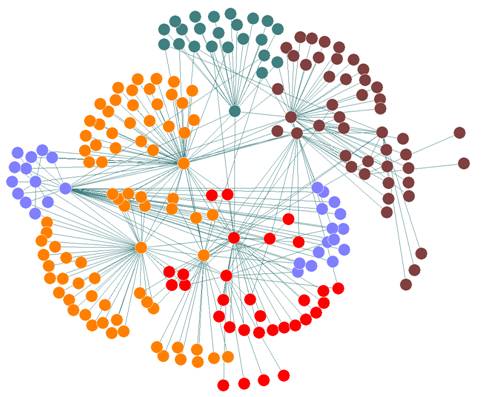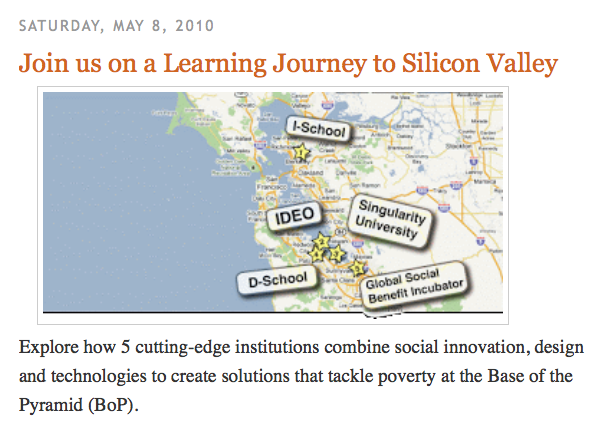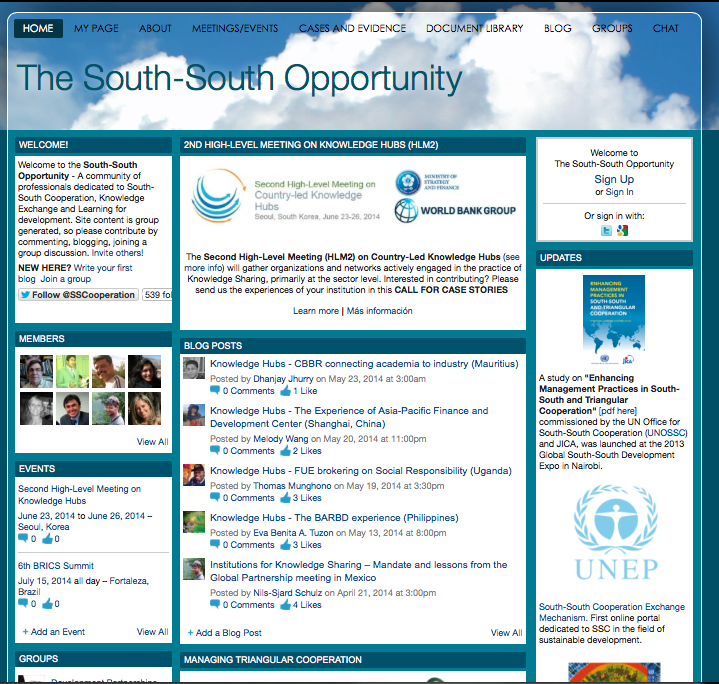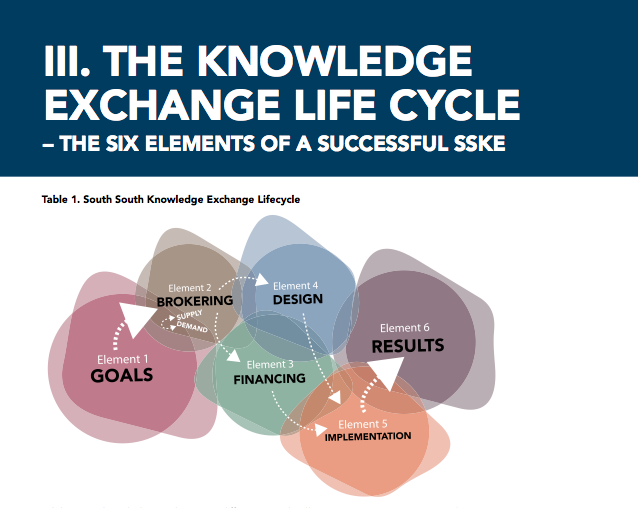Knowledge Marketplace
"What is South-South Knowledge Exchange?"
3 Stages
1. Research & Analysis of Market and Customer Needs.
2. Design & Co-Creation with Customers, Experts and Stakeholders.
3. Implementation of New Services and Products.
Research
Phase 1 - Customer Needs and Market Opportunity
We map the network of organizations and people engaged in knowledge exchange initiatives through workshops, interviews, field visits and desk research, categorizing the needs, behaviors, connections and influence of players in the market. (mock visualization)
Phase 2 - Lessons from Industry Leaders
Designing Open Knowledge for the World Bank
Knowledge is now recognized as one of the most valuable global commodities and when applied, a key source of competitive advantage and economic growth. To remain relevant, the World Bank realized it needed to become a “Knowledge Bank” and help countries find more effective solutions to their most pressing challenges.
Challenge. How to "open knowledge" and turn an invisible activity into a main line of business? In 2009 the World Bank was dedicating roughly 700M USD to initiatives aimed at exchanging knowledge. But these services and projects were ad-hoc, disjointed and hidden. Countries had no way to easily learn about each others' failures and successes, resulting in inefficiencies, wasted resources, unnecessary costs affecting millions battling poor health, education, transportation, violence and rampant corruption.
Approach. Customer-centered and co-created, we turned knowledge into learning by making it visible, accessible and applicable. With a team of 34 across 5 continents, we partnered with the UN, G-20, BRICS and worked alongside experts, ministers, project managers and even hackers across the world. I developed and managed networks and partnerships, conducted research analysis, facilitated workshops and digital integration, and prepared strategic communications.
Results. Five years and the shift is outstanding.
- A Knowledge Bank: Knowledge Exchange metrics and indicators are being streamlined into World Bank operations.
- Access to Financing: Instituted a 10M USD finance mechanism that has invested in over 150 initiatives across 85 countries.
- A How-to Guide: Pioneered the Art of Knowledge Exchange: a how-to guide for design of knowledge exchanges that has been adopted by leading institutions and trained thousands through handbooks, e-learning and workshops.
- A Solutions Market: Created a visual display of country solutions where 25,000 visitors have accessed maps, resources and contacts.
- Community-led Political Momentum: Set the agenda at the G-20 and UN Aid Effectiveness meetings by mobilizing the professional community through an online platform and in-person meetings to spearhead the political cause for country-led solutions.
- Knowledge Hubs Worldwide: Supported the growth of knowledge hubs in China, Indonesia, Brazil, Singapore, Korea, and Mexico.
Design
Phase 1 - Open Community Platform for Co-creation
We develop an open platform and build a community to discuss how we can better share knowledge amongst developing countries. Insights are used to inform and test new services and products, and build political momentum for the case of Open Knowledge. Today the community is managed by its' members and partners.
Phase 2 - Design-thinking for Innovation
I create an Innovation service based on insights from visits with IDEO to help our customers design human centered services and products.
My lessons in design-thinking for development are incorporated in World Bank guides and trainings.
Implementation
Visible and Accessible: Open Knowledge for a new Knowledge Bank
An interactive map visualizing knowledge exchanges by country, sector and theme.
How-To Design: The Art of Knowledge Exchange
A practical guide for designing knowledge exchanges.
Activities and Tools
Step-by-Step guide
Workshops + E-learning
Financing: A multimillion USD fund dedicated to supporting knowledge exchanges amongst developing countries.
Map of 150+ knowledge exchanges funded to date.
Supporting Female Entrepreneurship in Ethiopia from India






